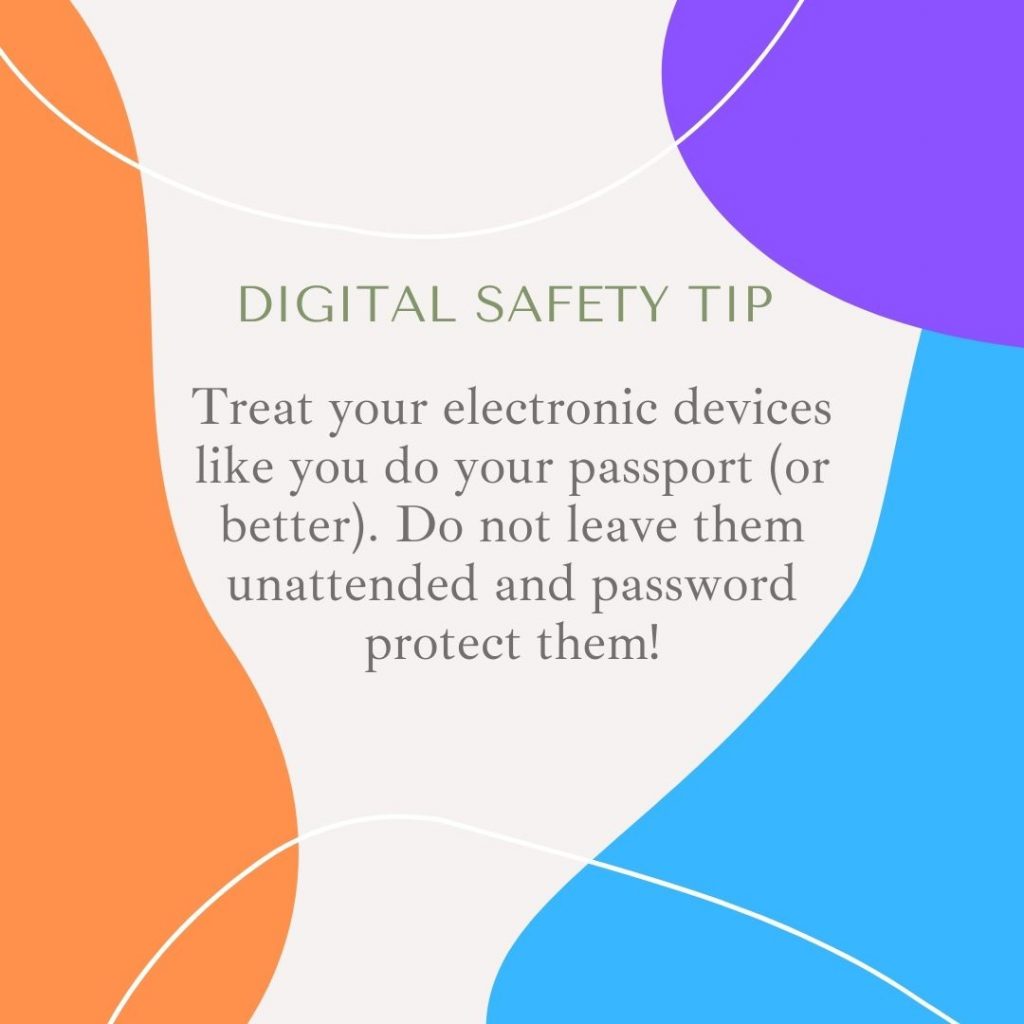Email, Internet, and Cell Phone Safety
Connect Safer.
Email and Internet:
- Be Aware! If you are being asked to provide sensitive or identifying information over the internet, call the company instead (the published number of the organization, not the one the person tells you to call) to provide the information.
- Remember that banks and government agencies, including Revenue Canada, will never ask for confidential information online.
- If you don’t know from whom the email or the attachment is coming, or if the subject line seems too good to be true, don’t open the email or attachment. Most likely no one is sending you $20 million if you would only just verify your information or click that link…
- If the email has grammatical and syntax errors – it’s probably a phishing scam (an attempt to get identifying information using a trusted name), don’t respond.
- If you are worried, search for the organization and contact Customer Service using the channels provided on the organization’s website. Make sure that the website URL begins with https://(their secured website).
- Limit who has access to you by keeping a separate “junk” email address to use for subscriptions etc. and only use your “official” email for friends, family and selected businesses.
Cell Phones:
- If you do not recognize the number that is calling you, let the call go to voicemail.
- Turn off your geo-locator when you are not using it.
- Restrict apps from accessing your camera, audio, contacts or location.
- Look at “apps” in your settings to see which ones have these permissions and decide whether they need that level of access to provide their services.
- Only download apps from a legitimate apps store. Avoid downloading third-party apps which may be infected with viruses or malware
As technology has evolved, we now have online lives that can be accessible to anyone, anywhere, and at any time. Here are a few ways you can strengthen the security of the private information that you send into the virtual world.
Digital Safety Tips:

- Treat your electronic devices like you do your passport (or better). Do not leave them unattended and password protect them!
- Microsoft will never call you about a virus they have detected on your computer.
- Use an anti-virus program on your computer, laptop, phone, tablet, and gaming device and scan your devices regularly.
- Change your passwords often – including on your smart home devices.
- There are password manager applications that might be useful in helping you to create more secure passwords.
- Scan for spyware if you have any concerns that your device is compromised. Some possibilities are https://www.superantispyware.com, https://www.safer-networking.org, and https://www.malwarebytes.com/products. For more information on this see our Cyberstalking safety tips.
- Turn off your geo-locator when you are not using it.
